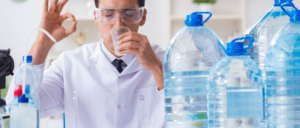In a world concerned with hydration, where water bottles have become everyday fashion items and drinking water is praised as the path to never-ending youth, I decided to do the unthinkable: Why I stopped drinking water.
And with this rising understanding, I decided to try an experiment: I would substantially cut my water intake and focus on hydrating through other means. The first few days were difficult since my body needed the familiar sensation of water sluicing down my throat. But as I persisted, I began to see incredible changes. My skin regained its radiance, my energy levels regained, and my digestion improved.
So, why did I stop drinking water? I came to an end when I understood that our bodies are so complex and adaptable. We don’t need strict regulations or external cues to inform us how much water we need. Our bodies know best, and they express their hydration requirements through thirst.
My journey has taught me that hydration is more than just drinking lots of water; it is about listening to our bodies and responding to their cues. It’s about knowing that hydration is a multifaceted term that includes water and other fluids, electrolytes, and even our general lifestyle.
If you’re interested in getting rid of the water bottle and living a life of mindful hydration, I invite you to join me on this adventure. Accept the challenge, question conventional thinking, and rediscover the power of your body’s intrinsic hydration intelligence.
The Perilous Path of Tap Water
Tap water, the most common source of hydration in most homes frequently contains hidden impurities that might cause health hazards. These contaminants, which range from chlorine and lead to pharmaceuticals and industrial chemicals, can negatively affect our systems, causing various health issues.
While chlorine is an effective disinfectant in municipal water treatment, it can also produce hazardous byproducts when interacting with organic debris in the water. Trihalomethanes, for example, have been linked to an increased risk of cancer and other health problems.
Lead, a dangerous heavy metal that may get into water from aged pipes, has been linked to neurological impairment in children. Lead poisoning can cause learning impairments, behavioral issues, and stunted growth.
For example, birth control pills and antibiotics can enter the water supply via wastewater treatment plants. While these medications are valuable in therapeutic concentrations, they can upset the delicate balance of hormones and intestinal bacteria in our bodies when eaten in trace amounts through tap water.
Pesticides and herbicides, for example, can contaminate water supplies, causing severe health problems. These substances can disturb the endocrine system, interfering with hormone production and control.
Exploring Alternatives to Tap Water
Going beyond tap water offers up a universe of other hydration tactics, each with its own set of advantages-
Filtration Systems: Investing in a home water filtration system can dramatically reduce the presence of pollutants in tap water. For example, reverse osmosis systems effectively remove contaminants such as chlorine, lead, and pharmaceuticals.
Bottled Water: While bottled water is convenient, it is critical to select brands that source their water from pure, uncontaminated springs and undertake thorough testing to verify quality.
Water Purification Tablets: Water purification tablets can be lifesavers for outdoor enthusiasts or people who live in places with limited access to clean water. These tablets successfully kill hazardous germs, making water safe to drink.
Improving Water Quality for Drinking
Individuals can take preventive measures to improve the quality of drinking water in addition to switching to alternative hydration sources:
Allowing the Water to Run: The water to run for a few minutes before filling a glass can help flush out any accumulated pollutants in the pipes.
Avoiding Hot Water: Hot water is more prone to leach lead from pipes; instead, drink cool water.
Cleaning Faucet Aerators regularly: Faucet aerators can harbour bacteria and mould; regular cleaning ensures that the water is fresh and clean.
Testing Tap Water: Testing tap water regularly can reveal the presence of contaminants and help guide the selection of appropriate filtration systems.
Frequently Asked Questions(FAQ’s)
Why do I not like drinking water?
- Taste: Water can taste boring or unpleasant sometimes, mainly if it contains pollutants or minerals influencing its flavor.
- Temperature: Drinking too cold or hot water can be unpleasant.
- Association: Water aversion can develop due to negative experiences, such as choking or feeling bloated after drinking too much.
- Habit: Individuals who are used to drinking sugary or flavored beverages may find plain water unpleasant.
What are signs of dehydration?
- Thirst: It is the body’s natural signal that it requires fluids. However, the body is already somewhat dehydrated when thirst sets in.
- Urine color: The color of urine is a reliable predictor of hydration state. Dehydration is indicated by dark yellow or amber urine, whereas appropriate hydration is characterized by pale yellow or clear urine.
- Dry mouth: Dehydration is shown by a dry mouth, especially when accompanied by other symptoms such as thirst.
- Fatigue: Dehydration can cause fatigue and a decrease in energy levels.
- Dizziness or lightheadedness: Dehydration can produce dizziness or lightheadedness because the blood supply to the brain is diminished.
Can you survive without water?
The human body can go without water for a long time, yet how long depends on several variables, such as age, general health, degree of activity, and surroundings. Adults can often endure without water for three to five days, but children’s lesser body mass allows them to survive for a shorter time.
What can I drink instead of water?
Even though water is the most essential fluid for staying hydrated, other options help increase daily fluid intake:
- Beverages high in electrolytes: Sports drinks, electrolyte-infused water, and coconut water can all help replace electrolytes lost during vigorous exercise or hot weather.
- Herbal teas: Besides offering extra health benefits, herbal infusions such as peppermint tea, ginger tea, and others are a tasty and refreshing way to stay hydrated.
- Fruit-infused water: You can improve the flavour of water and add a natural source of vitamins and minerals by adding fruits, including cucumbers, strawberries, or citrus slices.
- Milk: Besides being a source of critical nutrients like calcium, protein, and vitamin D, milk also keeps you hydrated.
Can you hydrate in a short period?
Short-term hydration is attainable, but it relies on the person’s fluid intake and the degree of dehydration. Drinking water in small amounts throughout the day will help your body replenish its fluids in hours if you are somewhat dehydrated. However, medical intervention may be required to rehydrate the body in extreme dehydration cases rapidly.
What is the most hydrating drink?
Since the body easily absorbs it and doesn’t include any additional sugars or electrolytes that could cause dehydration, plain water is the most hydrating beverage. But other liquids, such as electrolyte-infused water, sports drinks, and coconut water, can also help with hydration, particularly if electrolytes that have been lost need to be replaced.
Sum-up: Embracing Holistic Hydration
My desire for hydration enlightenment has shown me that our bodies are complicated beings that require care and attention, not just passive reservoirs for water. We can make knowledgeable decisions to provide our bodies with pure, healthful water through comprehension of the possible hazards linked to tap water and investigation of substitute hydration tactics.
Recall that staying hydrated involves more than just drinking water; it also consists of developing an awareness of water and treating it with consideration for the delicate ecology that supports us and the complex balance of our bodies. One drink at a time, we can start along the path to optimal health and well-being by embracing water consciousness.
Our bodies are made to work in perfect harmony with the natural world. To live a life full of vigor, balance, and well-being, we must respect our natural thirst demands, which sustain our bodies and minds and souls.




Leave a Reply